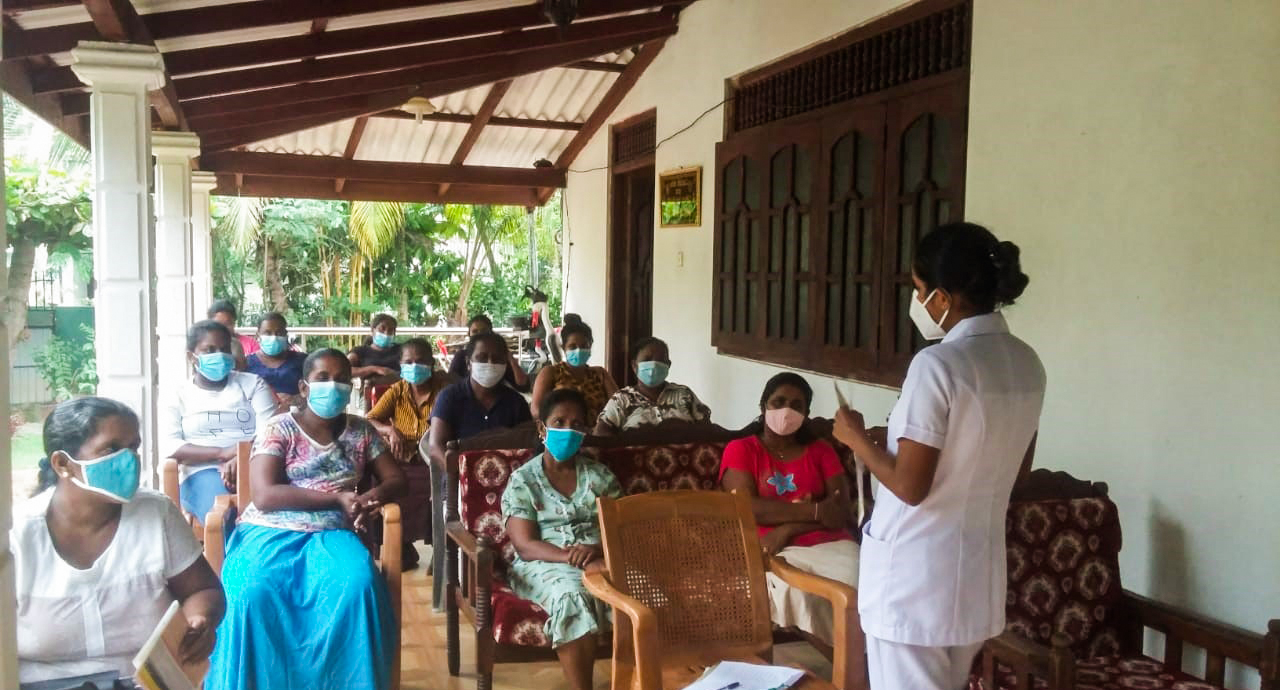Colombo, 8 March 2022: A silent change is taking place in Sri Lanka’s Kalutara district that is leading to cleaner skies and healthier lives. Realizing that air pollution from burning household and garden waste was damaging health, environment and contributing to climate change, the public health midwives (PHMs), have been leading the change to create safer homes and combat air pollution and climate change.
One of the main problems in rural villages was household waste not being properly segregated. Leaves and twigs were also swept up from compounds and gardens and disposed of by lighting small fires often using plastic bags sending toxic fumes into the environment.
In Sri Lanka, public health midwives (PHMs) are recruited from localities in which they are likely to work in. These close community ties have helped PHMs play an important role especially in rural parts of Sri Lanka in preventive health.
“Segregate the waste. Don’t burn it, make compost from the degradable waste collected in your back yard,” was the simple yet powerful message the 85 public health midwives(PHMs) shared with more than 17,000 women in Kalutara district.

As part of the initiative, ‘mother support groups’ were empowered to transform houses to ‘safe homes’ by the highlighting the benefits of segregating waste and avoid burning of household refuse, also a contributor to climate change.
These sessions helped residents better understand that some of the woes they faced – harsh droughts, scarcities of water, unprecedented rainfall, floods and the diseases which come in the wake of such events –may be mitigated and even averted by taking these small steps.
“I used to burn all degradable and non-degradable waste in the back yard. I did not know burning will ultimately cause health issues to my loved ones and will have an impact on our environment. The midwife taught us the negative consequences of burning waste,’ says 35-year-old Nadeesha a resident of Nagoda, Kalutara who attended the first awareness session.
These awareness sessions, part of the ‘Safe Cities & Safe Communities’ initiative, a collaboration between WHO Sri Lanka and the WHO collaborating center for Public Health Workforce Development at the National Institute of Health Sciences, Kalutara, Sri Lanka have produced visible change.
“Now I segregate the waste and collect the polythene and plastic separately and hand over to the Pradeshiya Sabha (local government body) garbage collection truck. I collect the degradable waste in a compost bin and get the fertilizer for my home gardening,” said Nadeesha.
The efforts of the Public Health Midwives (PHMs) have inspired the community and members now regularly segregate their household waste. Instead of seeing garden waste as a problem and burning it, they are reaping the benefits by composting, making for greener gardens, cleaner skies, and healthier and happier lives.